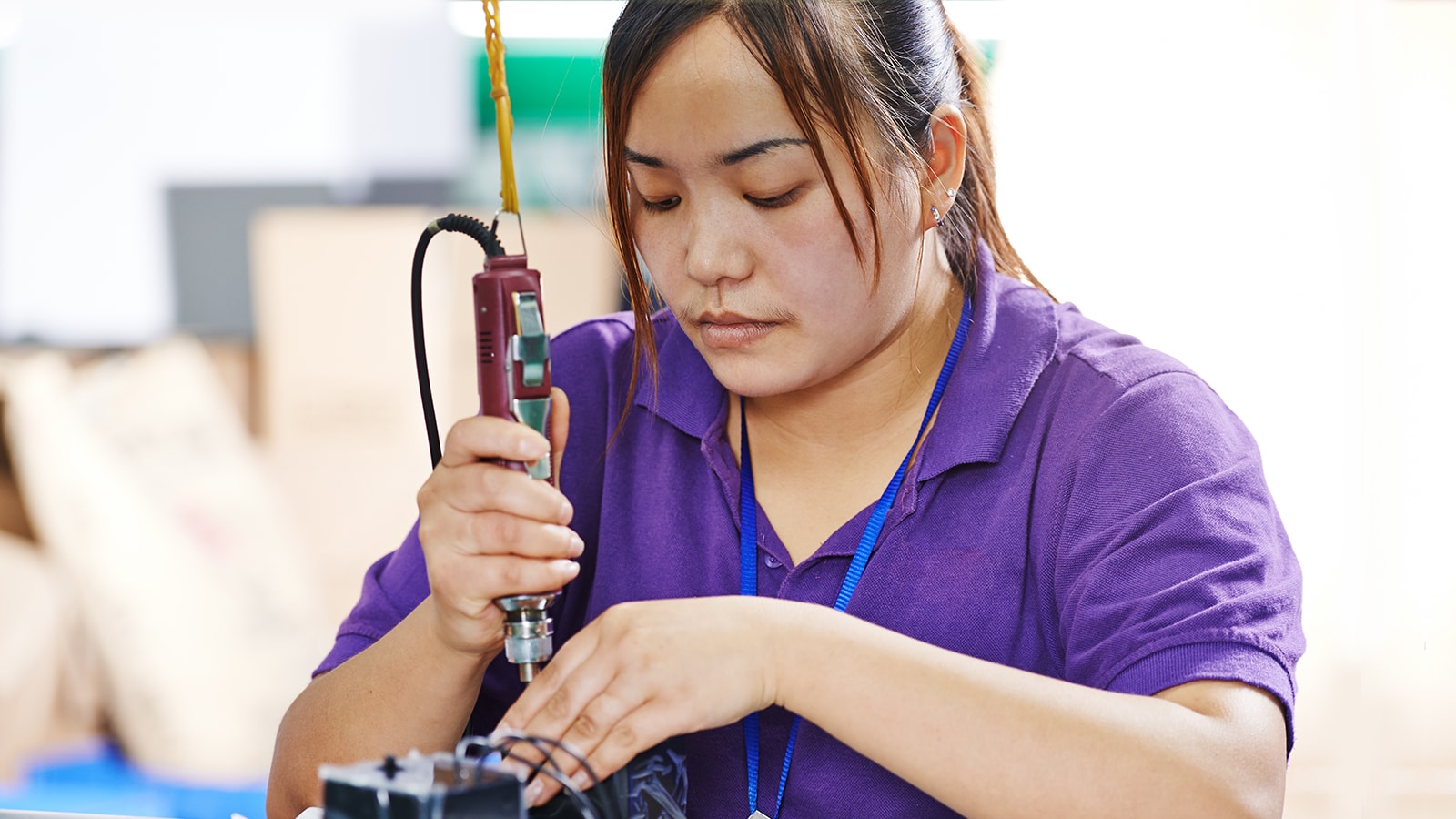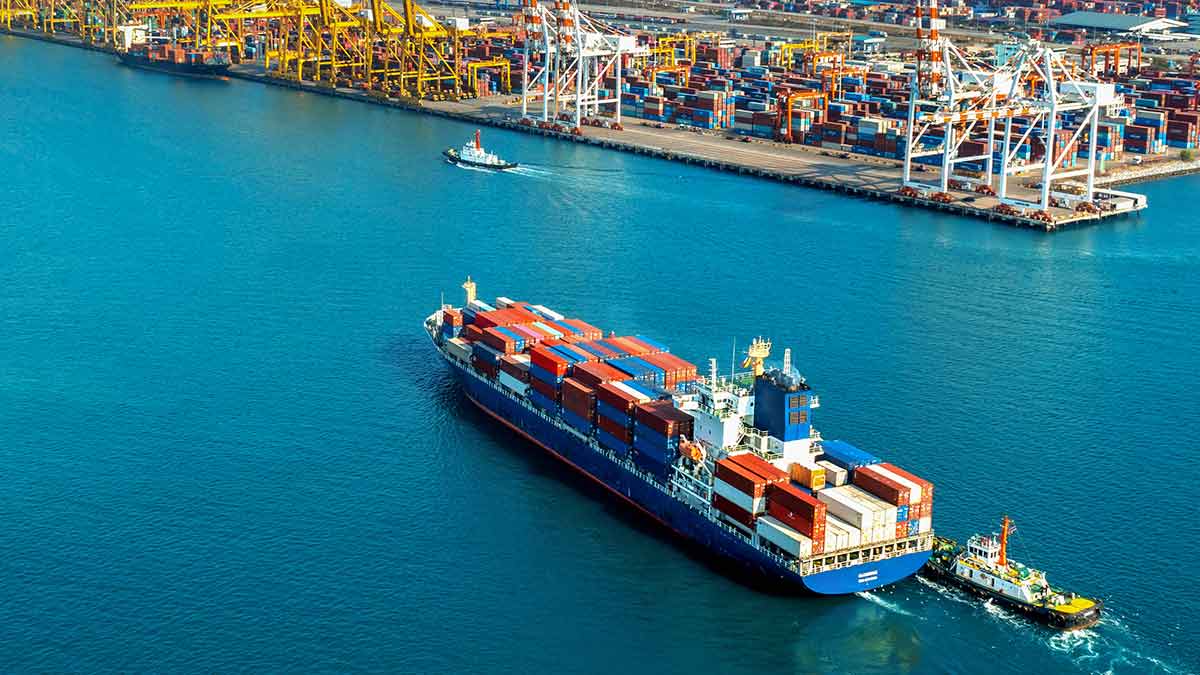Table of contents
Manufacturing is a major industry in the Philippines. It is an industry that consistently shows growth each year. In this article, we will discuss how to set up a manufacturing business in the Philippines.
We will also give more insights into the manufacturing industry in the Philippines. We will also detail incentives given to manufacturing companies and how to qualify for them.
Overview of the Philippine Manufacturing Industry
The manufacturing industry is one of the driving forces of the Philippine economy. It makes up about 25% of the country’s GDP according to the Board of Investments (BOI).
The BOI further states that the Philippine government aims to accomplish the following goals by 2025:
- Link and integrate manufacturing with agriculture and services industries
- Create a manufacturing innovation ecosystem
- Upgrade technology to a level that is globally competitive and innovative
Part of the government’s strategy to accomplish these goals is attracting foreign direct investments. Particularly those that would bring new technologies to the country.
Manufacturing Production Growth in the Philippines
Manufacturing production has recently seen healthy growth as well. The fastest-growing industries include:
- Printing
- Petroleum products
- Beverages
- Machinery (except electrical)
- Food
To attract investors, the government offers incentives to qualified manufacturing companies. Before you set up a company in the Philippines, make sure to check for incentives in your industry.
Philippine Economic Zone Authority (PEZA) Incentives for a Manufacturing Company in the Philippines
The Philippine Economic Zone Authority (PEZA) is a government agency under the Department of Trade and Industry (DTI). PEZA promotes investment in the Philippines. PEZA offers fiscal and non-fiscal incentives for qualified companies.
PEZA incentives encourage foreign investors to set up companies in the Philippines. It also helps businesses grow in their first few years of operation.
How to Qualify for PEZA Incentives
Eligible companies must register with PEZA to qualify for their incentives. Manufacturing companies involved in the following business activities are eligible for PEZA incentives:
- Export Manufacturing
- Agro-industrial Export Manufacturing
- Agro-industrial Biofuel Manufacturing
PEZA Fiscal Incentives for Manufacturing Companies in the Philippines
PEZA grants an income tax holiday to qualified manufacturing companies. Such companies have a 100% exemption from corporate income tax for a given amount of time. The length of the income tax holiday depends on what kind of project it is.
| Project | Income Tax Holiday period |
|---|---|
| Non-pioneer project | 4 years |
| Pioneer project | 6 years |
| Expansion project | 3 years* *The income tax holiday applies to incremental sales |
PEZA will grant income tax holiday extensions if the business meets any of the criteria below. Each item met is equivalent to one additional year:
- Annual net foreign exchange earnings of USD 500,000 for the first 3 years
- The project’s capital equipment to labor ratio does not exceed USD 10,000 to 1 for the year preceding the extension year
- The cost of indigenous raw materials is at least 50% of the total cost of raw materials for the year preceding the extension year
The income tax holiday period cannot exceed 8 years. This includes the initial period and extensions. Upon expiry of the income tax holiday, a 5% special tax will apply to gross income. Additionally, the business will be exempt from all national and local taxes.
It is important to note that under the income tax holiday, there is no exemption from real estate taxes.
In addition to the income tax holiday, qualified companies also have the following incentives:
- No taxes or duties when importing raw materials, capital equipment, machinery, or spare parts
- VAT zero-rating of local purchases. Note that this is subject to compliance with the Bureau of Internal Revenue and PEZA requirements
- Exemption from wharfage dues and export taxes or fees
- Exemption from payment of local government fees, licenses, or taxes.
- Machinery in the economic zone for manufacturing will be exempt from real estate taxes for the first 3 years of operation.
- Production equipment not attached to real estate are exempt from real property taxes.
- Exemption from expanded withholding tax.
PEZA Non-Fiscal Incentives for Manufacturing Companies in the Philippines
PEZA also has non-fiscal incentives for qualified manufacturing companies. These incentives are as follows:
- Simplified customs procedures.
- Employment of non-resident foreign nationals. Eligible companies may employ non-resident foreigners in supervisory, technical, or advisory positions.
- Special non-immigrant visas with multiple-entry privileges. Foreign investors, officers, and employees are eligible for this visa. Their spouses and unmarried children under twenty-one years of age are also eligible.
Board Of Investments (BOI) Incentives for a Manufacturing Company in the Philippines
The Board of Investments (BOI) is another agency under DTI. The BOI also aims to promote investment in the Philippines. This agency leans more towards IT and Research and Development. However, it also offers some incentives to qualified manufacturing companies.
Companies Eligible for BOI Incentives
Businesses that contribute to the development of a preferred area of business are eligible for BOI incentives. In the manufacturing industry, such companies are usually involved in the following products:
- Motor vehicles
- Shipbuilding
- Aerospace parts and components
- Chemicals
- Virgin paper pulp
- Copper wires and rods
- Basic iron and steel
- Tool and die
- Green manufacturing
Emerhub’s consultants can advise you on whether your company qualifies for these investments.
BOI Fiscal Incentives for Manufacturing Companies in the Philippines
Like PEZA, the BOI offers an income tax holiday for qualified businesses. Under this, the business is exempt from paying taxes for a certain period depending on the project.
| Project | Income Tax Holiday period |
|---|---|
| Non-pioneer project | 4 years |
| Pioneer project | 6 years |
| Projects located in less developed areas (regardless of pioneer status) | 6 years |
| Expansion and modernization projects | 3 years* *The income tax holiday applies to incremental sales |
The BOI also grants income tax holiday extensions. The criteria for an extension is the same as that of PEZA listed above. Similar to PEZA, the total period of income tax holiday for a company cannot exceed eight years.
Note that the BOI will not grant the income tax holiday incentive to a firm located in Metro Manila. There are exemptions for Metro Manila-based firms that meet at least one of the conditions below:
- Within a government industrial estate;
- A service-type project with no manufacturing facilities;
- A power-generating plant;
- An exporter with expansion projects
Aside from the income tax holiday, the BOI also offers the following fiscal incentives:
- No duties when importing capital equipment, spare parts, or accessories.
- Tax credit on raw materials, supplies, and semi-manufactured products
- Additional deduction from taxable income for labor expenses*
- Additional deduction from taxable income for necessary and major infrastructure works*
*Only if the company is not under the income tax holiday period
BOI Non-Fiscal Incentives for Manufacturing Companies in the Philippines
The BOI also has non-fiscal incentives for qualified companies:
- Simplified customs procedures.
- Employment of foreign nationals. BOI-registered companies may employ foreign nationals for supervisory, technical, or advisory positions.
- Importation of consigned equipment. This incentive is valid for 10 years.
- Allowed to operate a bonded manufacturing/trading warehouse. This is subject to the rules and regulations of the Bureau of Customs.
BOI Climate Incentives for Manufacturing
The BOI also offers incentives through the Climate Incentives for Manufacturing (CLIMA). The BOI aims to encourage energy efficiency and conservation.
The BOI grants CLIMA to companies involved in the manufacturing of goods or establishment of facilities that will:
- Lead to the efficient use of energy, natural resources, or raw materials;
- Minimize pollution;
- Reduce greenhouse gas emissions
Through CLIMA, the BOI grants duty exemption on imported capital equipment. The BOI also grants an income tax holiday for qualified projects.
Setting Up a Foreign-owned Company in the Philippines
Domestic Corporation in the Philippines
From Emerhub’s experience, the majority of foreign investors set up domestic corporations. Foreign investors can establish domestic corporations in industries that allow foreign investment.
We can help you set up your domestic corporation in the Philippines in 6 to 8 weeks.
Minimum Capital Requirements in the Philippines
The general minimum capital requirement for businesses with foreign ownership is USD 200,000. However, this may be lower depending on some factors. These factors include foreign ownership, employees, and business activities.
| Corporation | Minimum capital requirement |
|---|---|
| Businesses with more than 40% foreign ownership | USD 200,000 |
| Businesses that employ at least 50 Filipinos or uses advanced technology | USD 100,000 |
| Businesses exporting at least 70% of its products or services | PHP 5,000 (approx. USD 100) |
| Businesses with at least 60% of local ownership | PHP 5,000 (approx. USD 100) |
Corporate Structure of a Domestic Corporation
The corporate structure of a domestic corporation has the following:
- Shareholder(s)
- Director(s)
- Corporate Officers
- President
- Treasurer
- Corporate Secretary
A domestic corporation cannot have more than 15 shareholders. Foreign-ownership regulations will dictate how many foreign shareholders a corporation can have.
All corporations in the Philippines must have the following corporate officers:
- President. He or she must hold shares in the corporation. This means that foreigners may only hold this position if the industry allows foreign ownership.
- Corporate Secretary. Many of the corporate secretary’s responsibilities involve complying with local laws. As such, he or she must have a good understanding of laws and regulations. The corporate secretary must also be a citizen and resident of the Philippines.
- Treasurer. The treasurer must be a resident of the Philippines but does not have to be a citizen.
Get in touch with Emerhub to set up a manufacturing company in the Philippines. Our consultants will gladly assist you in establishing your business in the Philippines. Fill out the form below to get started.
Source:
Board of Investments







